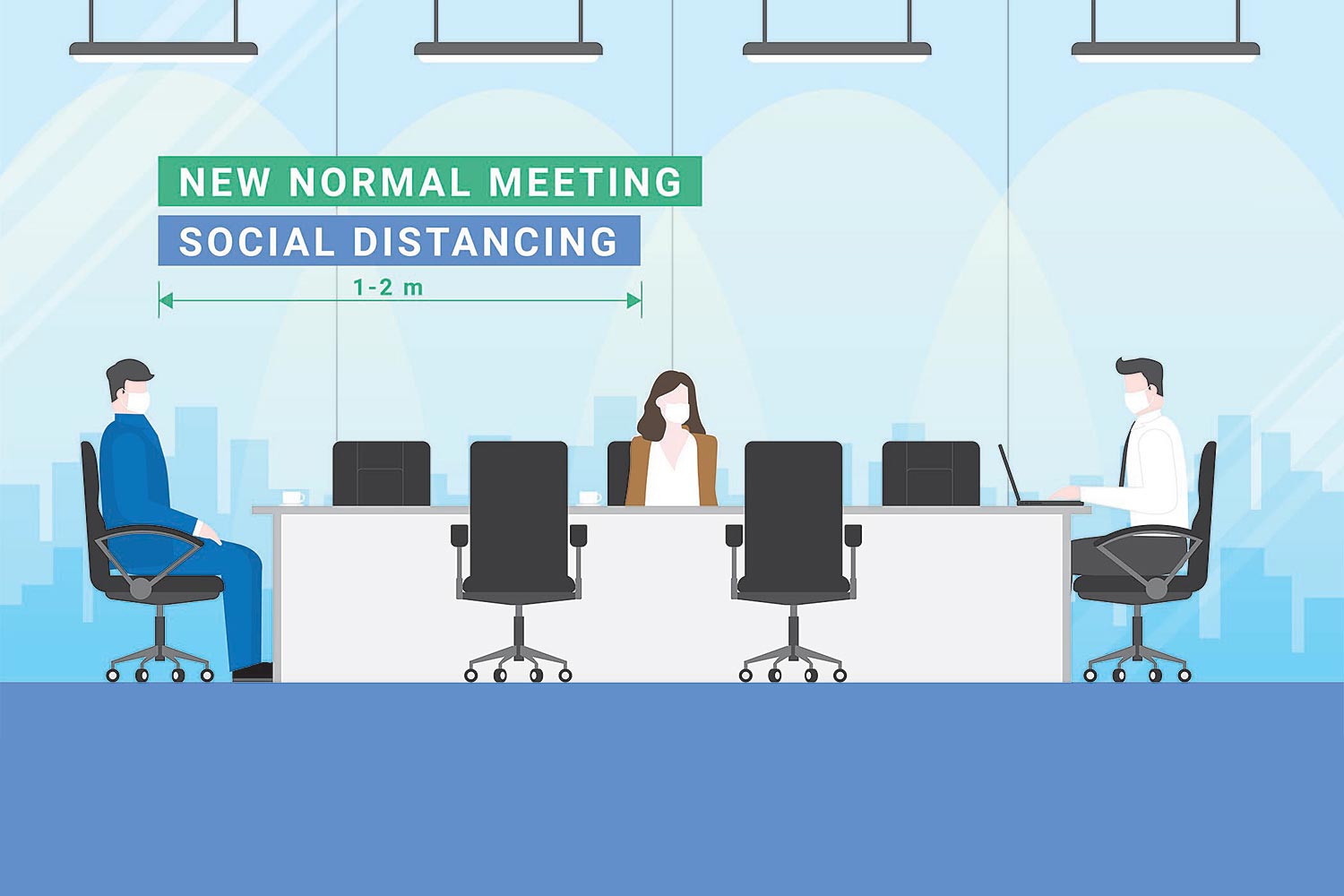The COVID-19 has disrupted the world from every aspect. We will start to get used to work from
home (WFH) amid this pandemic. The WFH thing is becoming a new normal for many.
Everything is fully online. School from home, work from home are kind of new normal
things. We send letters by mail, digitally sign documents, and do meetings via
Zoom or Cisco. We don’t need to do face-to-face discussion anymore. Thereafter,
what will be the new normal for our office?
The first office was originated in the 18th century by
ancient Rome. It was first built to handle paperwork. According to Wikipedia,
an office is defined as a room or area where people perform administrative work
to support the organization to reach its goals. By the industrial revolution
hit the world, clerical jobs were much needed than before. Therefore, offices
popped up throughout the world.
Office design has evolved and
transformed over the past decades. In the early 20th century, the open office
concept had reached its popularity. Open office meant no walls dividing desks,
no cubicles, and no individual offices. This style was designed for managers to
easily see their workers. From a worker perspective, this concept gave the
benefit of being able to speak to the office mate and ask for help if needed.

Source:
https://en.wikipedia.org/wiki/Office
By increasing the number of population
who are using the internet, the world is now connected. Based on Statista.com,
in April 2020, a total of active internet users reaches 4.57 billion people or
around 59% of the worldwide population. So, the internet currently becomes one
of basic needs which contributes in building our digital life.
In the life of the 21st century,
our world is getting smaller. People can even meet virtually through their
phones. It has demolished time and distance in real life. The digital world has
taken over us. Does distance still matter today?
As people are more mobile and
flexible in working, the term of Activity Based Working ("ABW") has
become increasingly popular. Workers could work anywhere as long as it can
connect with the internet. They don't need to wed in their office desk anymore.
As we can see many people work at the coffee shops, co-working space, or even
at their own home.
In line with the concept of ABW, the Ministry of Finance of the Republik Indonesia ("MoF") has implemented the new thinking of working. According to Decree of Minister of Finance Number 223 of 2020 regarding The Implementation of Flexible Working Space in the Ministry of Finance of the Republic of Indonesia (“KMK 223”), MoF has implemented such policy in some offices before enacted KMK 223. The new thinking of working aims to support bureaucratic efficiency, trust-building, work-life balance as well as to create a comfortable, fluid, and collaborative work environment. The ABW provides workers to choose a place in the office that is most suitable for them.
To support such policy, MoF has a breakthrough by developing Office Automation (OA) system called e-Kemenkeu. e-Kemenkeu is an integrated system of mailing, attendance, drive, Human Resource Information System (HRIS), and other features.

Source:
https://office.kemenkeu.go.id/home
COVID-19 first outbreak in March
in Indonesia coerced people to stay at home especially when Government enforced
temporary closure of offices and other activities that can gather people in
same place. Working from home should be done, at that time, to contain the
spread of the virus. This might be a challenging situation for any government
sector. With the stay at home order, public services must be still held. MoF
has made an innovation to ensure the business process still running or
so-called Business Continuity Plan (BCP).
By having e-Kemenkeu, all of the administrative processes are now digital. Therefore, the business process could be done from home. Based on Buletin Kinerja (1st Semester 2020), the total of MoF's employees who did WFH is about 84,89%. The implementation of WFH has made a vacancy in our office. In addition, it has affected a lower utility cost for electricity, AC, and water. Also, it even saved room usage up to 85%.
Then, what can we do to optimize the vacant space in our office? According to Article 27 Government Regulation No. 28/2020 on Management of State-Owned Assets, one of utilization forms is rent. State-owned assets can be rent out to everyone who needs the workspace. It could be a potential non-tax revenue since remote working is becoming more popular. Amid sluggish tax collection, this could be an alternative booster for Government’s revenue. So, do we still need an office for doing some paperwork stuff? I think it's going to be disrupted and offices are no more relevant.
References:
1. https://k2space.co.uk/knowledge/history-of-office-design/
2. https://en.wikipedia.org/wiki/Office
3. https://www.statista.com/statistics/617136/digital-population-worldwide/
4. https://www.kemenkeu.go.id/media/14963/buletin-kinerja-edisi-xli-semester-i-tahun-2020.pdf










